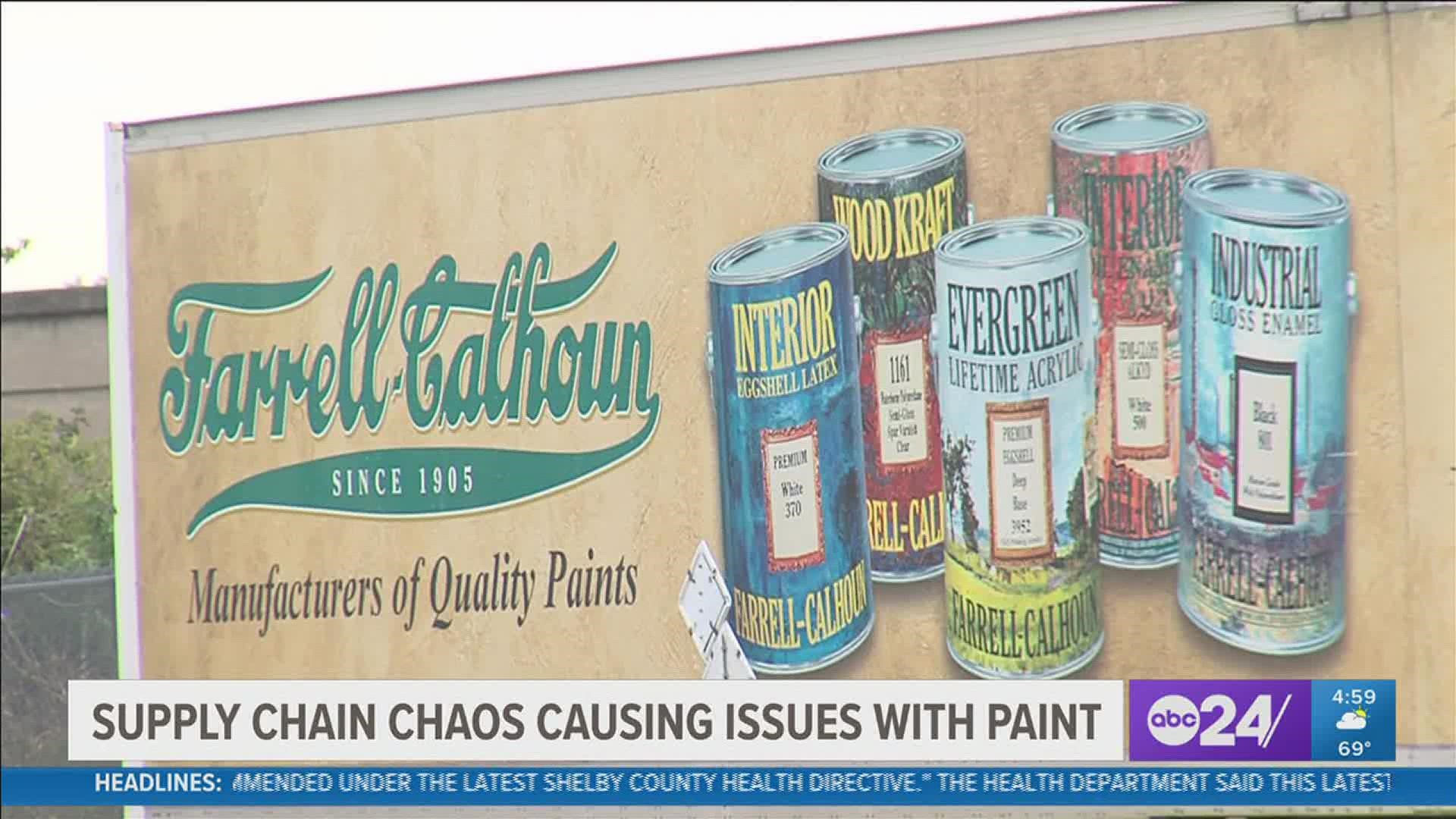MEMPHIS, Tennessee — The international supply crunch continues to make its mark in the Memphis area, including paint availability for simple home projects or larger construction buildouts.
Memphis-based paint company Farrell-Calhoun is especially feeling the crunch, with the unprecedented surge of overseas shipping increases, domestic chemical shortages, and local labor shortages.
The company is down in its supply but answering to more demand.
"It has been unbelievably stressful," Farell-Calhoun Vice President of Sales Anthony Ward said. "It has been extremely difficult. Our difficulties began in February."
Those challenges continue to this day.
"All of a sudden many of the raw materials we needed, we just simply couldn't get," Ward added.
Ward highlighted the challenges Wednesday at the company's warehouse, where the international supply crunch left fewer paint product racks full and available locally.
"Within every different paint there's probably 20 different ingredients that may go into a gallon of paint. And if you are out of just one of those that takes that offline. You just have to make do," Ward said.
The ongoing crisis is impacting more than just paint.
"Brushes have been in short supply, paper has been in short supply. It's just about everything that we buy at one point has been in short supply," Ward said.
The struggles with paint products come just as demand is up nearly 40%. That means lost potential business and tough choices.
"When you are in the sales world, it's a difficult thing to say 'no'," Ward said.
Then there's the final wildcard in the equation: higher costs from other buyers that's handed down to the consumer along the way.
"We generally try to hold our pricing. We probably don't go up every two and a half to three years. We've gone up three times in the last six months. That's never happened in the history of our company, never," Ward said.
A major driver in those cost increases: shipping container prices from China to the United States. A container which once cost $3,000 dollars before the pandemic costs as much as $25,000 today.

